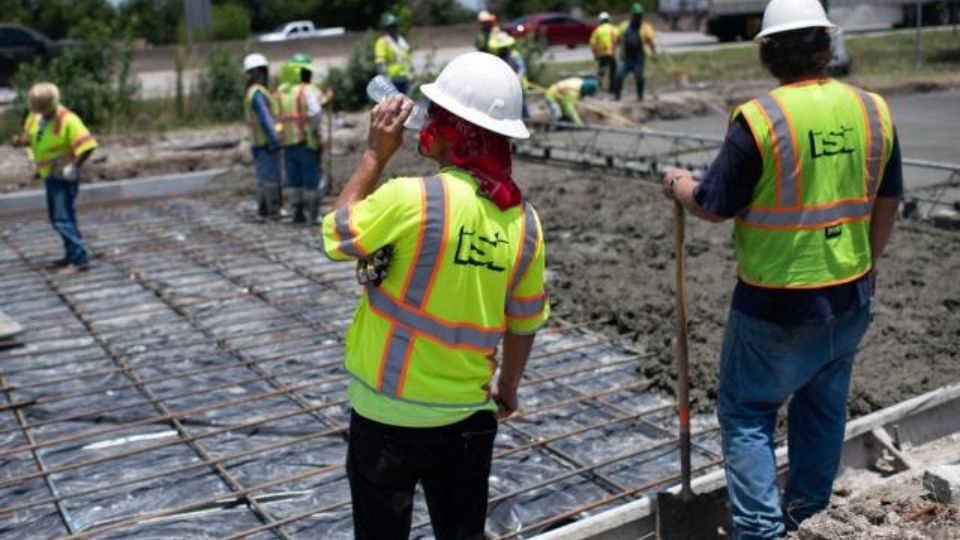A study from the Federal Reserve Bank of San Francisco suggests that extreme heat will negatively impact the US economy by reducing the productivity of construction workers and limiting capital investment.
The construction sector plays a crucial role in determining how vulnerable US production is to extreme heat. This is because the industry contributes significantly to the economy and employs a large number of outdoor workers. A paper analyzed the impact of extreme heat on the value of accumulated investment, also known as capital stock.
“Our research shows that if we don’t take significant steps to reduce carbon emissions, extreme heat in the future could cause a 5.4% decrease in the total value of capital and a 1.8% decrease in annual consumption by the year 2200,” economists Gregory Casey, Stephie Fried, and Matthew Gibson wrote in a working paper published on the bank’s website on Tuesday.
The study predicts how often outdoor workers will experience heat stress in the future. It measures the number of days per year that exceed safety thresholds for what is considered “heavy work.” The number of days is expected to increase significantly by the end of the century. It is projected to go from 22 days in 2020 to around 80 days by 2100, according to the authors’ estimates.
Also Read: 3 Top Dividend Stocks That Should Pay You Forever
The authors studied the economic output from 1950 to 2019 and divided it into five sectors. They wanted to see how the economy could be affected by labor productivity losses caused by extreme heat. Most of the work is done indoors with climate control, although services and manufacturing are the main industries. Construction is the biggest part of the outdoor sectors in the US, which also include agriculture and mining.
The researchers created a model to examine how productivity in different sectors affects overall economic outcomes. The paper explains that the construction industry is a significant part of the overall investment in the US. If productivity in this industry decreases, it will have a lasting impact on the economy by slowing down the accumulation of capital.
The researchers looked at the size of capital stock in two different situations. One study found that there was no increase in extreme heat exposure after 2019. However, another study predicted that the number of extreme heat days could reach 80 by the year 2100.
“According to Casey, Fried, and Gibson, extreme heat in the future could cause a decrease in the capital stock of about 1.4% in 2100 and 5.4% in 2200.” “When there is less capital stock, the economy is not able to produce as much output. As a result, people have less to consume.” Therefore, we discovered that very high temperatures decrease yearly consumption by 0.5% in 2100 and 1.8% in 2200.
The authors did mention some important points to consider. Companies and employees can make changes to cope with the heat, such as moving some production to cooler areas of the country or working during cooler times of the day.


Leave a Reply